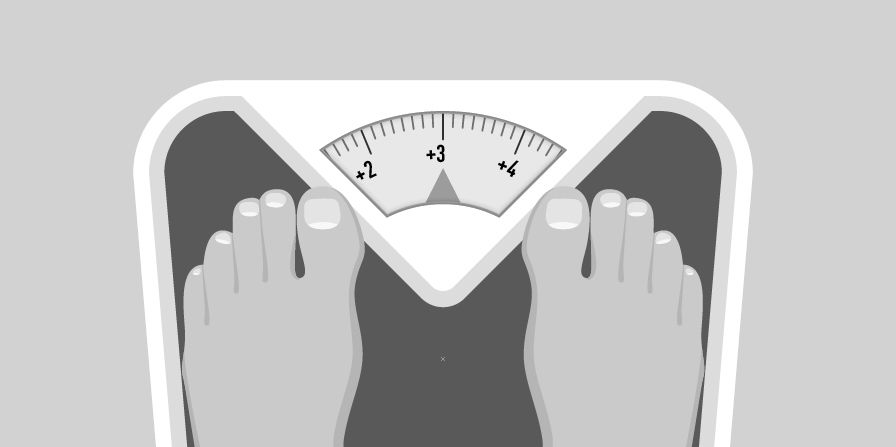Research finds freshman 15 over-exaggerated
weight scale
September 5, 2019
The start of a new school year is already upon us.
For some students, this is the first time they are away from home. New freedoms, endless choices and many decisions await. Whether you’re a freshman or a senior, there is a fear known to nearly all college students — the dreaded freshman 15.
The unlimited food at the dining hall, snacks your mom left you or even the pizza left from the night before becomes extremely tempting in moments of college stress.
This phenomenon is widely known, but it is often over-dramatized. As young adults, college students are bound to gain weight as they age. Lisa Nolting, Iowa State Student Wellness Dietician, spoke about the misconceptions of college weight gain.
Nolting works in one-on-one nutrition counseling, and said in her experience the vast majority of freshmen don’t gain 15 pounds. Research suggests a typical weight gain is between three to five pounds.
Nolting said it is important to dismantle the idea that weight is an indication of health. There are many factors that contribute to health, such as the ability to access affordable health care, environment, food security and having a safe space to exercise.
“It is completely normal and your body is supposed to change as you age,” Nolting said. “No one needs to worry about combating weight gain.”
Iowa State Student Wellness offers one-on-one nutritional counseling and eating disorder services for students. Nolting uses a non-diet approach to her sessions. Health at Every Size is the principle of life-enhancing movement, eating for well being and weight inclusivity, according to the Iowa State Student Wellness website (studentwellness.iastate.edu).
“A lot of what I do is try to educate people about this, that health can occur at any size,” Nolting said.
Apart from counseling services, Iowa State offers a variety of food science and human nutrition courses that students of any major can take to become more educated on health.
Lauren Geistkemper is a teaching assistant for Food Science and Human Nutrition 167 (FSHN 167).
“It’s kind of funny, we were actually talking about the freshman 15 in class last week, because a lot of our students are freshmen,” Geistkemper said.
The course instructor, Wendy White, shared information that turned the concept of freshman 15 on its head. When 22 studies were pooled, it was found that the average freshman gains only three pounds. 39 percent did not gain any weight at all freshman year; 61 percent gained an average of seven and a half pounds.
This weight gain can be described by many different factors and depends on the individual. The stresses of college, lack of sleep, food choices and consumption of alcohol all contribute to weight gain.
While there are many ways to spend time in college, exercise is one of the most beneficial for students. The most drastic decreases in physical activity occur during late teen to early adult years.
“It’s usually a multitude of things; it’s not all just one problem,” Geistkemper said. “To choose better nutritional choices, try to stick to three meals per day; avoid eating on the go.”
Living a holistic life goes beyond worrying about weight.
Taking care of yourself by eating well, exercising in a way that you enjoy, destressing and enjoying your time in college will contribute more to health than worrying about potential weight gain. If students do face health issues, rest assured that Iowa State has multiple services and classes to educate students on how to improve their lives.







